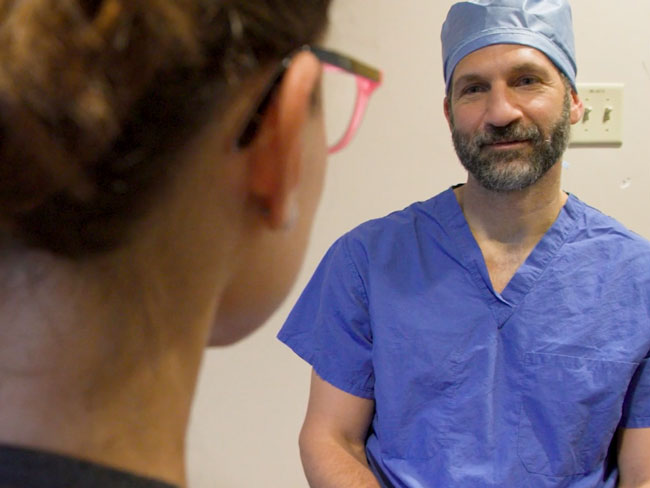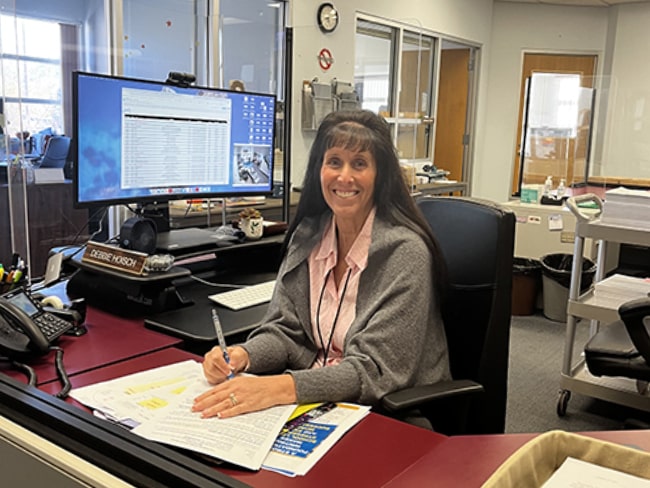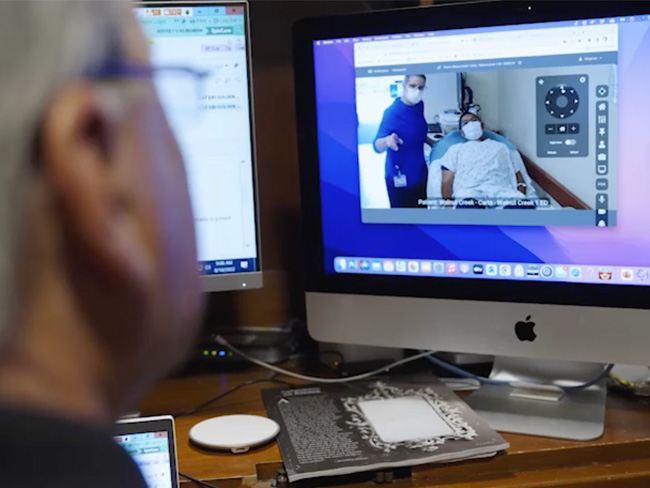Grateful for the gift of speech
After experiencing a stroke, K-9 handler Lameka Bell regained near-total speech functionality through speech therapy at Kaiser Permanente.
Lameka Bell’s story serves as a reminder of the importance of well-being and stress management in reducing the risk of stroke.
In December 2022, Lameka Bell felt some numbness in her hand and called Kaiser Permanente for medical advice. Bell, a police officer and K-9 specialist, was encouraged to seek immediate care if she experienced any other symptoms. She went to the emergency room after having additional feelings that something wasn’t quite right.
“My K-9 dogs started bringing me my clothes and cell phone and moving around in circles,” said Bell, describing how the dogs sensed something was wrong. “When I got to the hospital, that’s when my speech started going bonkers.”
Bell had experienced a stroke that caused aphasia, or the loss of ability to express speech. One-third of all strokes result in the language disorder. This is because strokes can cause damage to the left side of the brain, which is the side associated with language skills and functions.
The road to recovery
Once released from the hospital, Bell began regular speech therapy sessions with Lauren Polly, a speech-language pathologist at Kaiser Permanente Coastline Medical Office in Harbor City, California.
“Lauren is the most wonderful person,” said Bell. “She was extremely encouraging and positive, and her patience and professionalism helped me to see my potential. At first, I could barely talk — but she gave me back my life.”
Bell’s role as a facility dog service officer and community liaison requires her to frequently interact with the public. “Speech is my job, and I love what I do,” she said.
Bell’s husband, Phillip, also saw the improvement in her abilities. “In the beginning, my wife struggled with all the exercises and would get tired easily,” Phillip Bell recalled. “After only 3 months, she was able to speak mostly fluently again.”
Lauren is the most wonderful person. She was extremely encouraging and positive, and her patience and professionalism helped me to see my potential. At first, I could barely talk — but she gave me back my life. Lameka Bell
Identifying the risk factors
A clear cause of the stroke could not be identified despite numerous diagnostic imaging scans, lab tests, cardiac monitoring, and an ultrasound. However, the couple acknowledged the toll their high-stress occupations — law enforcement and teaching — can take on their mental and physical health.
“If someone is in a chronically stressful environment, that might lead to high blood pressure — which is a huge risk factor,” said David Hannauer, MD, a neurologist and director of stroke care at the Kaiser Permanente South Bay Medical Center in Harbor City.
Kaiser Permanente helps members stay ahead of heart disease by tracking, treating, and minimizing risk factors. These efforts have helped Kaiser Permanente achieve some of the best blood pressure control rates in the nation. Some 80% of Kaiser Permanente members with high blood pressure have the condition under control, compared to 60% of patients with high blood pressure nationally.
Making healthy changes
“Lameka’s stroke really called my attention to the need to take better care of ourselves,” noted Phillip Bell. "Spending some time away from work to care for Lameka has been good for both of us in managing our health, and we’re making that a priority now.”
“Taking good care of yourself is very important and can make all the difference in avoiding a stroke,” said Dr. Hannauer. He advises patients to adopt a good diet, exercise regularly, keep their blood pressure under control, treat high cholesterol, and maintain a healthy blood sugar.
Know the common signs and symptoms of stroke. Learn more about Kaiser Permanente’s commitment to being your partner in heart health.





























